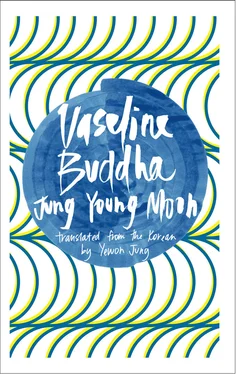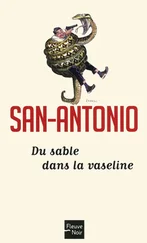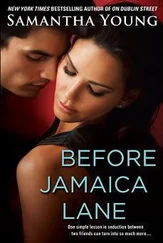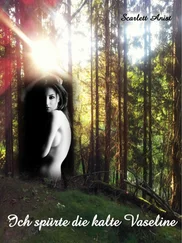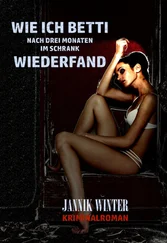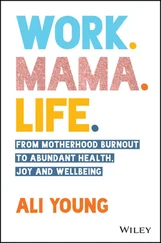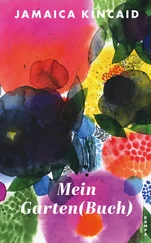I’d probably do better to let the words write themselves, as if I were writing down something dictated by someone unseen, and introduce chaos into the story, as well as giving it some kind of a system, thus exerting much effort in writing a story in which it is difficult to find traces of a plot, a story without traces of a plot, only traces of an effort to remove traces.
And I’m somewhat curious as to what kind of a distorted story will result overall when you devote yourself to the details with no thought to the overall structure. One of the reasons why I don’t write stories with a clear structure or theme is because there’s something about such stories, in and of themselves, that make me shudder with their boredom, and another, because just one look at our reality will show you how far removed such stories are from our reality — or my own life, at least — and how different the truth of our reality is from what’s depicted in them.
What I can write is a story that’s not quite a narrative, and is much too obscure and unstable. Not being obsessed with a completed story will create an opening into different territories in novels. A story with gaps and cracks and leaps and loopholes, a story that’s incomplete somehow, may more faithfully reflect real life. What exerts the greatest influence on my life is things without substance, and I’m turning my life into something without substance, and as I regard the struggle against things without substance, or tangible substance, as the only genuine struggle — this problem of mine seems to be a fundamental problem of the world as well — I have no choice but to clumsily write something without substance.
Make it a story, if possible, that’s not full of the power of narrative, a story seeking to break away from narratives whose naivety makes you smile, narratives that are dull because of their inherent tendency to seek power, and because their dull ideas are generally audacious, and their audacious aim to enlighten is inevitably dull. The persistent tendency in me to prevent the unfolding of a story, and the belief that there’s no narrative to life, could perhaps make that possible. There are, of course, people who believe that there’s a narrative to life, some of whom seek to turn their own lives into something with a narrative, through whatever means possible, and some of them do so with ambition, and some write narrative texts, and some reveal their ambition without hiding it, for it’s difficult to hide such an ambition when you have it, but among such people, there are probably some who come to realize that in the end, their lives can’t be a narrative, and that a narrative is not a principle that penetrates life, and turn their attention to something that’s not narrative. What I want to write is something that depicts the fragmentary aspects of life, which are like a tangled skein, in a fragmentary manner, something that reflects my own life, which in itself is a great chaos, by creating and maintaining chaos, the greatest constituent of life.
Perhaps I seek to write something that’s fit to be read on a rock in a forest you come to while on a daily walk, or in a café on a street where you’re traveling. I would bring into my story fragmentary stories whose pages, turned by the wind, can be read at random, stories that allow you to close your eyes while reading and dwell for a moment on a scene that can be taken out from the book and savored, stories that are far from being narrative. Even when I talk about the anecdotes, they will be stories that are not quite narratives, stories that cannot be narratives. Perhaps even as I talk about the anecdotes, I could talk about my impressions on the anecdotes and the thoughts created by those impressions, preventing the anecdotes from developing into narratives.
What I seek to emphasize as I write this story, which perhaps says nothing, and in which something becomes nothing when the standards are changed, or whose meaning or importance changes (some of the stories I tell could end up being told somehow even though I had no intention of telling them, or tried not to tell them. And there will be almost no difference between some of them, even if there’s a difference between those that are told and those that are not told), is not the story itself, but ways in which stories are told (the ways would include saying something that doesn’t seem to make sense at one glance in a clever way so that it does make sense), and ideas that prevent something from degenerating into a story — ideas that prevent a story, even as it is told, from developing into a story in the end, or at least into a complete story — or, since many ideas come from things, something that is developing into ideas on things, or thoughts on thoughts I’m thinking, or on the pleasure or the difficulty of thinking, or thoughts on pleasure or difficulty itself.
And I’d have to subdue the various voices within myself that raise themselves or speak simultaneously — some of the voices seem to plead some kind of a difficulty, and some of them are on their way to understanding a cruel, merciless heart — or give weight to one of the voices. I’d have to close my ears to the end to the nastiest of them all, and press and suppress it, the voice that comes from the part deepest within me, the voice that denies everything, the voice that is used to silence or has learned to be silent.
Perhaps that is the result of a certain conflict between a figure I have designated as the first person narrator of the story I’m writing and myself, for it could be difficult for a narrator, who feels uncomfortable that the author’s voice slips in, and that his autonomy is violated, and the author, who sticks his head out while hiding behind the narrator, to speak in one voice. I already sense that the figure I have designated as the narrator would spoil the fun of the figure identified as the author and dash cold water on the thoughts that the author has, possibly leading the author to stand up to him even more for fun, and the person actually writing this story could find himself in an awkward position between the narrator and the author, and have a difficult time arbitrating between the two and side with one of them at times, but find himself in an ambiguous position at times (perhaps this story will be written by at least three people), and I’d have to write so that a calm tone and a cheerful tone cross and collide like dissonance, so that the unity of tone is broken, and tell the darkest story in the most cheerful way, or vice versa.
Anyway, there are other thoughts I’m obsessed with now, thoughts about death. Thoughts about death, of course, have always followed me around, and I’m as familiar with death as I am with the spots on my body I’ve had since I was born.
In light of the fact that although many things in life seem predetermined, nothing, in fact, is predetermined, and that you yourself can decide everything at every moment, and if you think carefully, very carefully on that fact, there come moments in which suicide, the best choice you can make, becomes very alluring, and such moments come to me far too often.
What I think about mostly, however, is death in general, not suicide through which I would murder myself, and not actual death, but something abstract, like the memory of a day when you shivered terribly in the cold, or a feeling you had upon seeing an abstract painting, or a sudden thought you have when looking at a dead fish still intact on your plate in a restaurant.
It’s summer now, and in full bloom by my bedroom window are trumpet creepers, which are known to be toxic, or which I somehow came to believe are toxic, though I don’t know whether or not it’s true, and which I could touch by reaching out a hand, over the wall of my neighboring house, and looking at them, I think of death once again. For some time I had indulged in the idea that the toxin in the showy flower could make me die slowly, or at least go insane, and felt a strong desire to eat a trumpet creeper, and at one time had to realize that desire in another way, by coming up with the sentence, When a trumpet creeper dressed in the wrong clothes is going round and round many horses, you need to make an effort to row and go to the bottom of the lake.
Читать дальше
